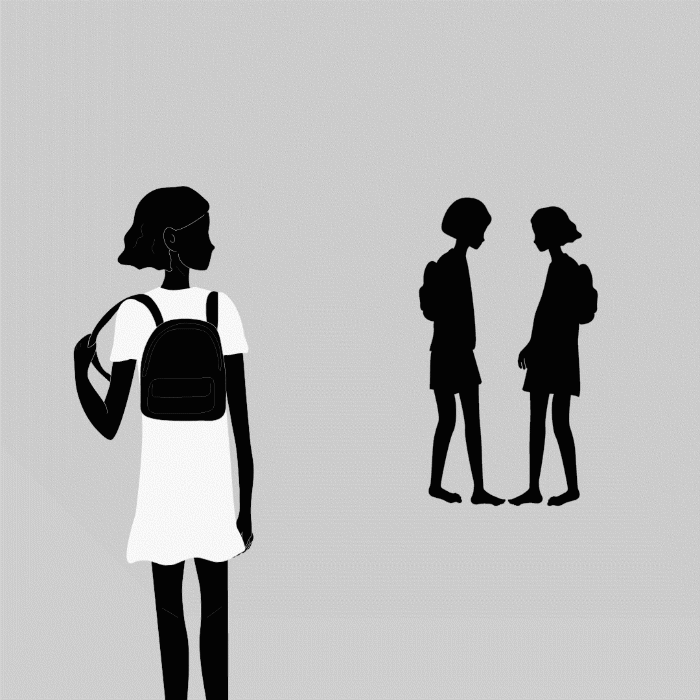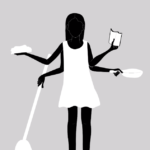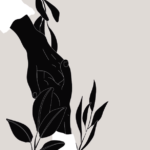JANJEVA, THE PLACE WHERE 6 ETHNICITIES COEXIST
One of the assets of the small town is the coexistence of the Albanian, Roma, Ashkali, Egyptian, Turkish and Croatian communities. All these communities share the same living space, within the surface of this town. There is generally harmony between them, but there are cases where ethnicities discriminate against each other.
Illustration: Argjira Kukaj

Janjeva is a town in the Municipality of Lipjan in eastern Kosovo, with an area of 1085km / 2. It was first mentioned as a settlement in 1303 as a Catholic parish. Janjeva has over 2 thousand inhabitants. It was once mentioned for its mines from which gold and silver were mined. It is characterized by its geographical extent and position and its religious and ethnic tolerance. Although a small country, many names emerged from Janjevo who contributed in various fields. One of them is Father Shtjefën Gjeçovi (1874-1929) who was an Albanian Catholic priest, ethnologist and folklorist. One of the schools in Janjevo also bears his name. And his house has already been turned into a museum.
In addition to all this, another asset of the small town is the coexistence of the Albanian, Roma, Ashkali, Egyptian, Turkish and Croatian communities. All these communities share the same living space, within the surface of this town. There is generally harmony between them, but there are cases where ethnicities discriminate against each other.
Janjeva is an example of the coexistence of six ethnic groups in a small place with a small number of habitants. This is obviously a positive example, but unfortunately sometimes it also ends in disagreement and prejudice, things that should not happen.
Hanife Gradina, 14 years old, who comes from the Roma community, says she sometimes feels left out.
“Other communities do not use offensive words, but sometimes it happens to us in shops or in other places that bypass us and give priority to others,” says Gradina.
But there are also those who feel accepted in the social circle, regardless of ethnicity. Laura Jozic, 13 years old, who belongs to the Croatian community, is one of them.
“I get along well with everyone, especially with Albanians, since all my neighbours and my close friend are Albanians and we have created a very good friendship among ourselves,” says Laura.
Ethnic discrimination is characterized by unfair or differential treatment because of ethnic belonging. Thus, ethnic discrimination as an experience, among others, includes insults, humiliation, oppression, rejection of a person of a certain ethnicity. Many people turn their dislike of an ethnic community into feelings of hatred. In a word denying their existence, freedom, and every good deed.
In addition to systemic and structural discrimination, day-to-day discrimination, which is perhaps more covert, occurs on an interpersonal level. People prejudice and offend people who have ethnicity, religion, skin color, lifestyle, and other economic status.
In Janjeva, discrimination is most prevalent in the school, expressed in the form of prejudice and insults to different ethnic communities. Although teaching takes place in the same facility, discrimination continues to be there.
One of the cases that illustrates this discrimination, in the school Shtjefën Gjeçovi, is when in the school sports field, some Albanian parents were alarmed by the fact that students from different communities have played with each other. This ugly case, had limited their children to socialize with the children of other communities.
One of the main causes leading to discrimination is the lack of sufficient information both in school facilities and in the family circle, about the basic rights of every individual to be treated equally. So often there is no interest in addressing these issues and educating children in this regard.
Discrimination can cause many consequences to an individual or social group, leading to a decrease in self-confidence, inability to engage in social life equally. Individuals who are victims of discrimination may also close in on themselves and not feel comfortable expressing out loud what they have being afraid that will get criticized and prejudiced by others.
In the moment that we think that ethnicity, the lighter skin pigment, or financial income make you better than the other then this issue should be changed. To put this topic in a wider discourse and to address it in every family and institution.
Janjeva may be an example in terms of coexistence, but there we find two paradoxes. We have discrimination and tolerance in the same place.
We notice tolerance especially during religious holidays. You see residents wishing each other the holiday that belongs to for example: Eid, Easter, Catholic and Orthodox Christmas. Only that the same spirit must continue throughout the other days of the calendar year. Residents of Janjevo have already managed to adapt to this way of life, but this does not mean that the situation cannot be made even better.
About the author: Anisa Kryeziu, 15 years old, from Janjeva is high school student.
This grant is supported by the ‘Civil Society programme for Albania and Kosovo’, financed by the Norwegian Ministry of Foreign Affairs and managed by Kosovar Civil Society Foundation (KCSF) in partnership with Partners Albania for Change and Development (PA). The content and recommendations do not represent the official position of the Norwegian Ministry of Foreign Affairs and Kosovar Civil Society Foundation (KCSF).


